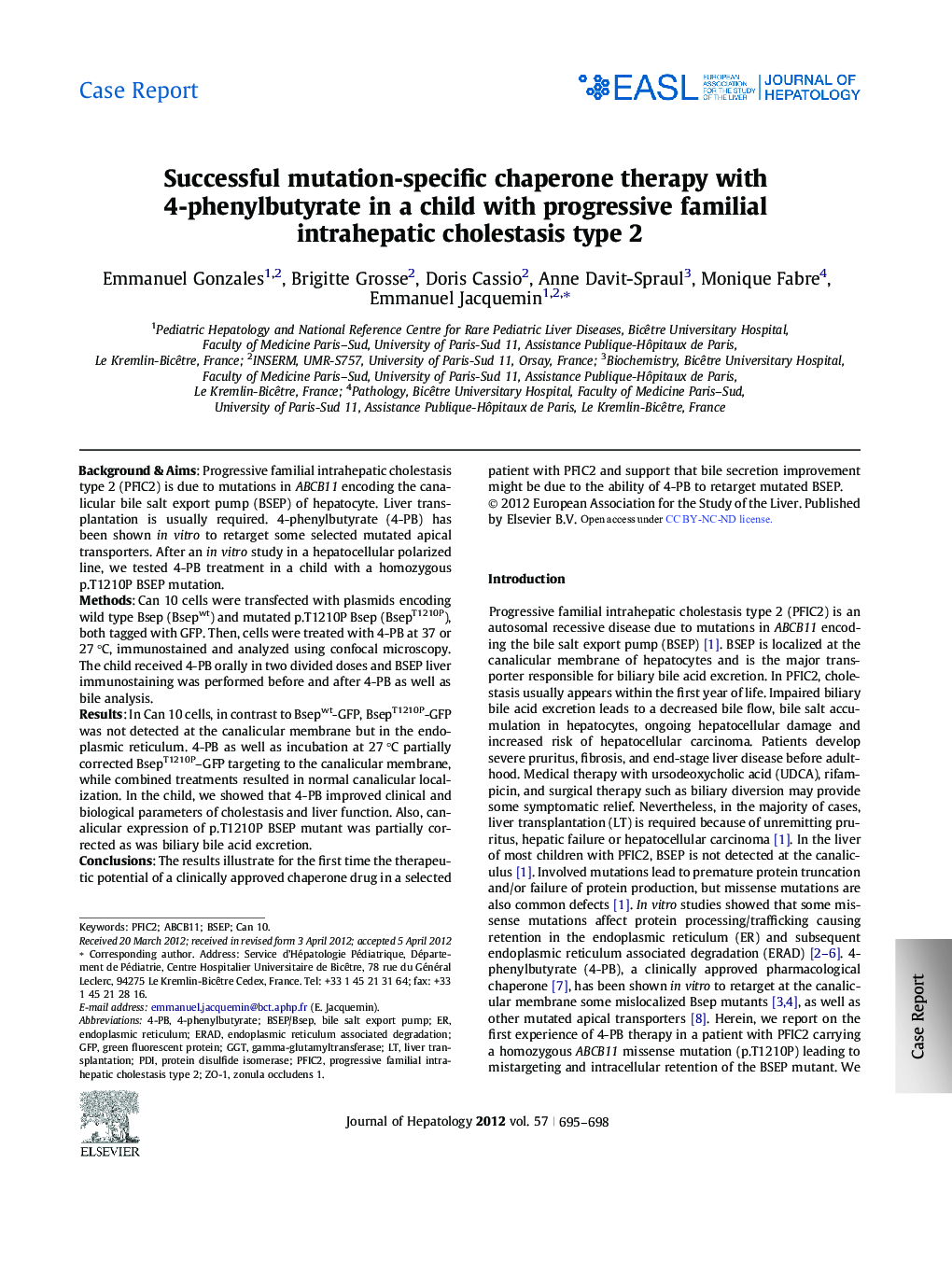| Article ID | Journal | Published Year | Pages | File Type |
|---|---|---|---|---|
| 6106559 | Journal of Hepatology | 2012 | 4 Pages |
Background & AimsProgressive familial intrahepatic cholestasis type 2 (PFIC2) is due to mutations in ABCB11 encoding the canalicular bile salt export pump (BSEP) of hepatocyte. Liver transplantation is usually required. 4-phenylbutyrate (4-PB) has been shown in vitro to retarget some selected mutated apical transporters. After an in vitro study in a hepatocellular polarized line, we tested 4-PB treatment in a child with a homozygous p.T1210P BSEP mutation.MethodsCan 10 cells were transfected with plasmids encoding wild type Bsep (Bsepwt) and mutated p.T1210P Bsep (BsepT1210P), both tagged with GFP. Then, cells were treated with 4-PB at 37 or 27 °C, immunostained and analyzed using confocal microscopy. The child received 4-PB orally in two divided doses and BSEP liver immunostaining was performed before and after 4-PB as well as bile analysis.ResultsIn Can 10 cells, in contrast to Bsepwt-GFP, BsepT1210P-GFP was not detected at the canalicular membrane but in the endoplasmic reticulum. 4-PB as well as incubation at 27 °C partially corrected BsepT1210P-GFP targeting to the canalicular membrane, while combined treatments resulted in normal canalicular localization. In the child, we showed that 4-PB improved clinical and biological parameters of cholestasis and liver function. Also, canalicular expression of p.T1210P BSEP mutant was partially corrected as was biliary bile acid excretion.ConclusionsThe results illustrate for the first time the therapeutic potential of a clinically approved chaperone drug in a selected patient with PFIC2 and support that bile secretion improvement might be due to the ability of 4-PB to retarget mutated BSEP.
